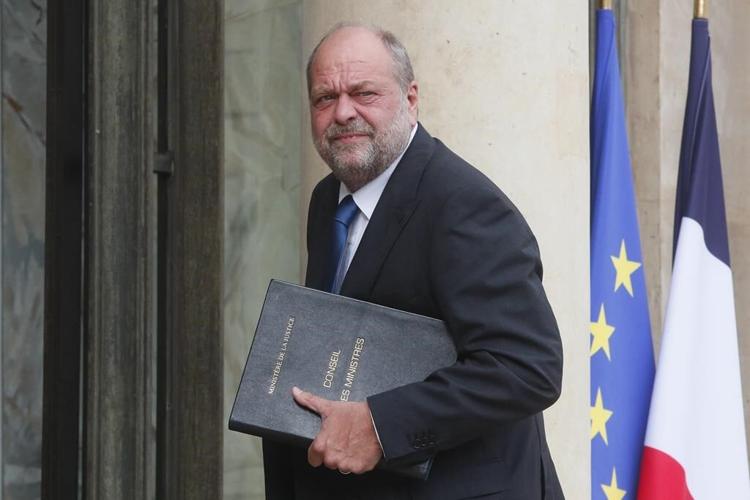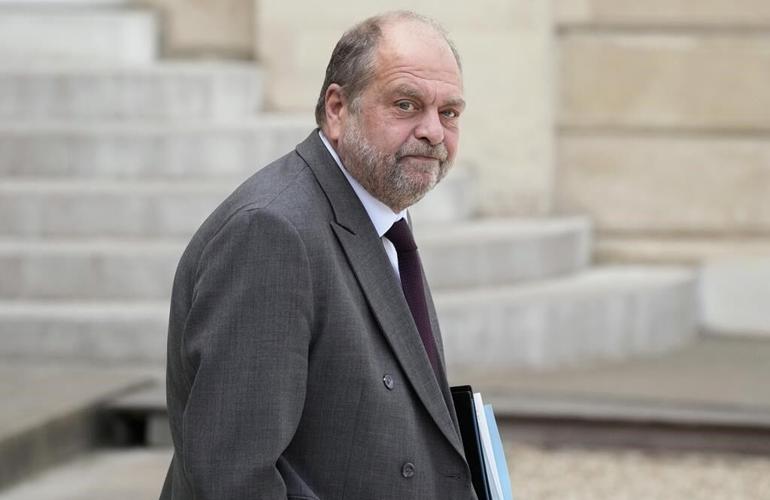PARIS (AP) — France’s justice minister went on trial Monday on charges of using his office to settle personal scores, in an unprecedented case that has raised concern about checks and balances in French democracy.
Justice Minister Eric Dupond-Moretti’s refusal to resign — or at least to step aside from his role overseeing France’s justice system during the trial — has drawn criticism. He denies wrongdoing and called the case against him ‘’illegitimate'' as the two-week trial began.
’’The presumption of innocence has been trampled. I’ve been confronted with insults and lies," he told the court.
Once a high-profile lawyer, Dupond-Moretti is accused of abusing his position as justice minister to order probes targeting magistrates who investigated him, his friends and his former clients. He faces up to five years in prison and a half-million euros ($537,000) in fines if convicted on charges of illegal conflict of interest.
The trial marks the first time in modern France that a government minister has been put on trial while still in office, according to legal historians. Until now, it was seen as an unwritten rule that members of government should resign if they were put under investigation.
Dupond-Moretti was appointed justice minister by President Emmanuel Macron in 2020 and has said he will remain in office through the trial, which is due to end on Nov. 17. Prime Minister Elisabeth Borne reiterated her support for Dupond-Moretti on Monday before the trial opened.
He went on trial in a special court for alleged wrongdoing by the government, the Court of Justice of the Republic. He faces three professional magistrates accompanied by 12 members of parliament — six from the lower house and six from the Senate — who will issue a ruling. A majority of eight votes is required to decide on guilt and sentence.
’’This situation is unprecedented: A justice minister in office is judged by the Court of Justice of the Republic for infractions committed while he carries out his job," magistrates’ unions said in a statement ahead of the trial.
’’Our organizations consider that this situation damages the credibility of the justice minister, and by ricochet, weakens the entire justice system," it said.
Dupond-Moretti is considered one of France’s leading criminal lawyers, and is nicknamed the “acquittor” for his record 145 acquittals. Over the past 10 years, he had been increasingly involved in political cases, and his relations with certain magistrates had soured.
Soon after he was named minister, he opened administrative investigations against magistrates in charge of proceedings that had directly concerned him: three magistrates from the national financial prosecutor’s office and a former investigating judge in Monaco.
The investigations found no wrongdoing by the four magistrates.
Magistrates’ unions filed a legal complaint against Dupond-Moretti, saying the investigations were unfounded and an effort to use his role as minister to settle personal scores. The trial focuses on those investigations.
As a criminal lawyer, Dupond-Moretti was known for his courtroom oratory. He was restrained at his own trial, dodging cameras and giving only a brief declaration in the courtroom.
’It’s an ordeal, but also an opportunity, because I have come to defend myself,″ the minister, dressed in a sober black suit and tie, said.
Dupond-Moretti maintains he wanted to avoid any conflict of interest.
He is viewed as among the left-leaning members of Macron’s centrist government, but critics of varying political views have questioned why he didn’t step aside from his post during the trial. He has said he didn't want to ‘’abandon'' his ministry during the proceedings.
Some politicians also argue that government ministers should be tried in traditional courts, where civil parties can also take part, instead of a special court with its own special rules.
___
Angela Charlton in Paris contributed.










































